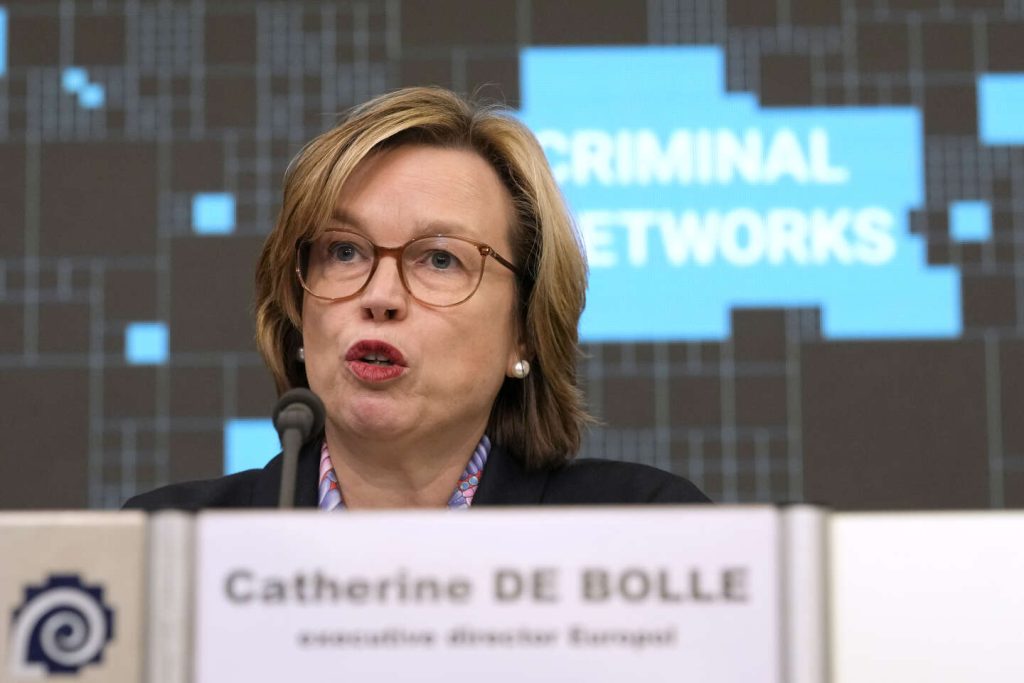During a press conference in Brussels on April 5, 2024, the Executive Director of Europol, Catherine De Bolle, along with ministers, European Commissioners, and Belgian police officials, highlighted the thriving criminal industry in Europe. With 821 officially recognized groups and 25,000 members from 112 nationalities, the crime industry poses a threat to youth, society, and democracy. They discussed the publication of a comprehensive study by Europol on the criminal structures at work in the 27 European Union countries, detailing their activities, organization, modes of operation, cooperation, and infiltration of society using violence, intimidation, and corruption.
The report’s sixty pages do not reveal the names of specific organizations, but it identifies the presence of Albanian and Italian mafias, the Dutch-Belgian Mocro Maffia, and various Eastern European groups that engage in lucrative activities such as synthetic drugs, online fraud, vehicle theft, and cigarette smuggling. While individual names are not included, the databases created at Europol’s headquarters in The Hague are seen as valuable resources for law enforcement, the judiciary, and policymakers in making operational decisions to combat organized crime. Europol’s goal is to make invisible criminal networks visible and to organize a network to counteract these threats to the EU’s internal security.
Of the 821 identified groups, nearly half are involved in drug trafficking, with over a hundred exclusively focused on cocaine trafficking that flows through ports in Antwerp, Rotterdam, and Hamburg. Another hundred groups are engaged in both cocaine and other illegal drug trades. The report provides crucial information for authorities to address these criminal activities and prevent further harm to society. The fight against organized crime requires coordinated efforts across borders and increased cooperation between law enforcement agencies to dismantle these dangerous networks and safeguard public safety.
In response to the concerning findings of the Europol report, efforts are being made to enhance intelligence-sharing mechanisms, strengthen cross-border cooperation, and implement more effective strategies to combat organized crime. Europol’s role in providing valuable insights into the activities of criminal groups and facilitating collaboration among European law enforcement agencies is crucial in addressing the multifaceted challenges posed by these criminal networks. By bringing together resources, expertise, and technology, Europol aims to disrupt criminal operations, dismantle criminal structures, and protect citizens from the dangers posed by organized crime.
The growing influence and reach of organized crime in Europe underscore the need for a unified and comprehensive approach to tackle this complex issue. Europol’s efforts to shed light on criminal activities and facilitate information sharing among member states are pivotal in combating the threat posed by criminal organizations. By investing in intelligence gathering, operational coordination, and resource allocation, European countries can work together to disrupt criminal networks, dismantle illegal activities, and safeguard the security and well-being of their citizens. Collaboration, innovation, and determination are essential in the ongoing fight against organized crime and the protection of European societies from its detrimental impacts.















